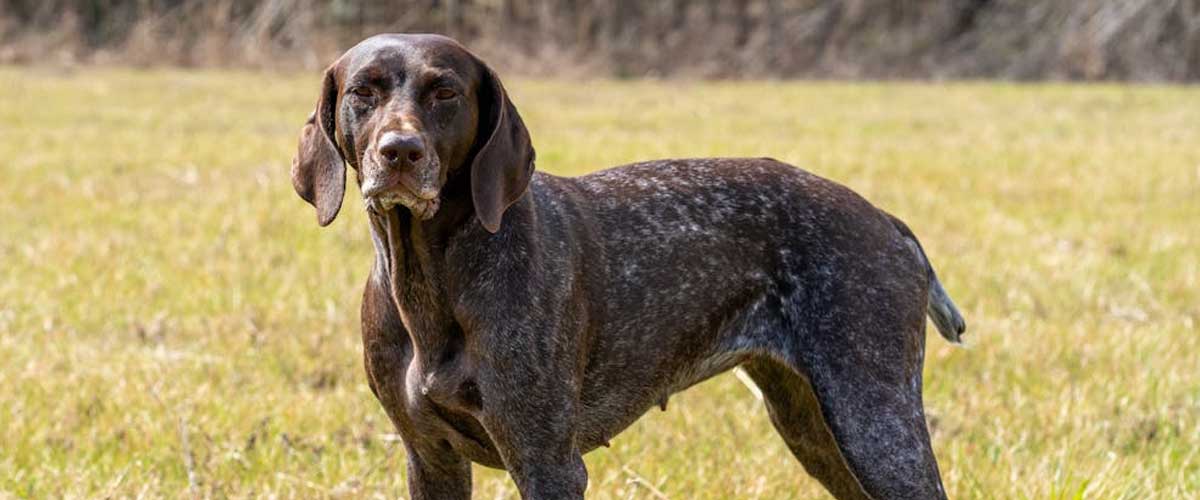The German Pointer, more commonly known as the German Shorthaired Pointer (GSP), is a remarkable breed known for its versatility, intelligence, and friendly disposition.
Developed in Germany in the 19th century, this breed was specifically designed for hunting purposes, combining the agility of a pointer with the endurance of a retriever.
Today, the GSP excels not only in hunting but also as a beloved family pet, making it one of the most popular breeds worldwide.
Physical Characteristics
German Shorthaired Pointers are medium to large-sized dogs, with a robust and athletic build.
Males usually weigh between 55 to 70 pounds, while females range from 45 to 60 pounds.
Their sleek coat is short, dense, and water-resistant, typically presenting in various combinations of liver and white, often featuring distinct patches and spots.
The breed’s large, expressive eyes and long, floppy ears add to its distinctive appearance.
Temperament and Personality
One of the most appealing aspects of the German Pointer is its temperament.
These dogs are known to be friendly, intelligent, and eager to please, making them excellent companions.
They are highly social animals and thrive on human interaction.
GSPs are also known for their playful nature, which makes them great with children and other pets.
However, their high energy levels require regular exercise and mental stimulation to prevent boredom and behavioral issues.
Exercise and Training
As a breed originally developed for hunting, German Shorthaired Pointers require substantial physical activity to stay healthy and happy.
Daily walks, runs, or play sessions in a secure area are essential to meet their exercise needs.
Activities such as agility training, swimming, and fetching are great ways to engage and challenge them both physically and mentally.
Training a GSP can be an enjoyable experience due to their intelligence and eagerness to learn.
They respond well to positive reinforcement techniques.
Early socialization and obedience training are crucial, as these dogs can sometimes exhibit stubbornness if not properly guided.
With consistent training, they can excel in various canine sports and hunting activities.
Health Considerations
Like all breeds, German Shorthaired Pointers are prone to certain health issues.
Common concerns include hip dysplasia, elbow dysplasia, and certain eye conditions.
Regular veterinary check-ups, a balanced diet, and an active lifestyle can help mitigate many potential health issues and keep a GSP thriving.
Conclusion
The German Shorthaired Pointer is a wonderful breed for active families or individuals who can provide the necessary exercise and companionship.
Their friendly nature, intelligence, and versatility make them not only excellent hunting companions but also loyal family pets.
With the right training, socialization, and care, a GSP can be a joyful addition to any home, bringing energy, love, and enthusiasm to everyday life.












